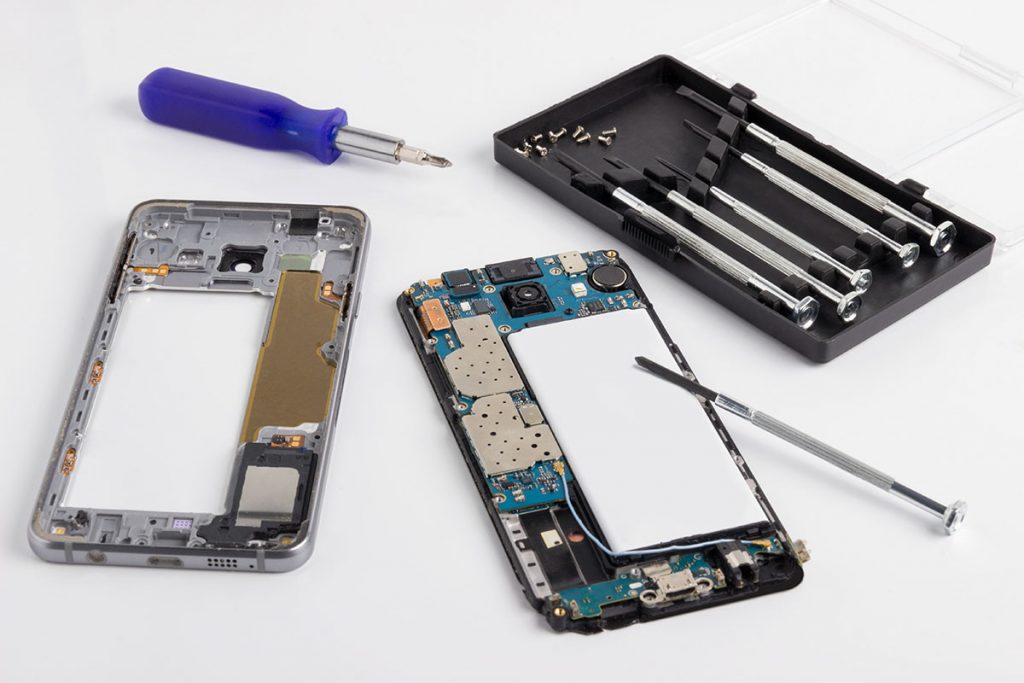
Oregon’s proposed bill would mandate access to schematics, tools and parts at a fair and reasonable cost and cover any household product – from computers to appliances – that contains digital components. | Alexey Kabanov/Shutterstock
Supporters of the right to repair consumer electronics are hoping that the third time’s the charm in Oregon.
On a Jan. 11 Association of Oregon Recyclers webinar, multiple panelists said they expected a consumer electronics right-to-repair bill to be re-introduced this legislative session.
Charlie Fisher, state director of the Oregon State Public Interest Research Group, said he’s hoping Oregon will become the second state to pass such a bill, following New York, whose governor signed a similar bill at the end of 2022.
“We’re hoping Oregon is second,” Fisher said. “If we’re third, if another state does it first, I won’t be too upset, although I would very much like to be second.”
Fisher said New York’s bill, the Digital Fair Repair Act, was “watered down fairly significantly in order to get the governor’s signature, so it was not as unambiguous of a success as it appeared to be when it passed through the Assembly.”
The Digital Fair Repair Act exempts motor vehicles, refrigerators, ovens, microwaves, air conditioning and heating units, off-road vehicles, power tools, farm equipment and medical devices. Of the devices that it covers, it only applies to those that are manufactured after July 1, 2023.
However, Fisher said New York’s bill is still an important first step, and “most importantly, it speaks to the support and momentum for right-to-repair legislation and how bipartisan it is.”
Oregon’s proposed bill would mandate access to schematics, tools and parts at a fair and reasonable cost, Fisher said. It covers any household product, from computers to appliances, that has some sort of digital equipment in it, “so essentially anything with a computer chip in it.”
It will exclude motor vehicles, anything with an internal combustion engine or an engine that exceeds 25 horsepower, medical devices, any item that is not or has not ever been available for retail sale to a consumer, and anything that provides heat, ventilation or air conditioning or recharges refrigerant gasses.
“From a purely principled perspective, we would like for all these things to be included, but we’re pragmatic about trying to get something passed and have learned in the past couple years that the correct strategy is to start with what people really think about – phones, tablets – and expand out from there,” Fisher said.
He’s hopeful that the third time this bill is put before the legislature will be the time it passes, especially as national momentum grows. More than 20 states are expected to introduce right-to-repair legislation this year, Fisher said, and Colorado recently passed a similar law for electric wheelchairs.
In response to an audience question about how to get Republicans on board with right-to-repair bills, Fisher said it’s already a fairly bipartisan idea, because it touches on being self-sufficient and is anti-monopoly. He said not to “write off that Republicans don’t care about the environment,” either.
He added that “restrictions on repair means in some ways that you don’t really own what you purchased.”
More stories about Refurbishment/Reuse
- Makor ERP to incorporate ESG reporting into platform
- Construction stops at Georgia solar panel recycling plant
- Corporate E-Waste Solutions expands into AZ, KS



